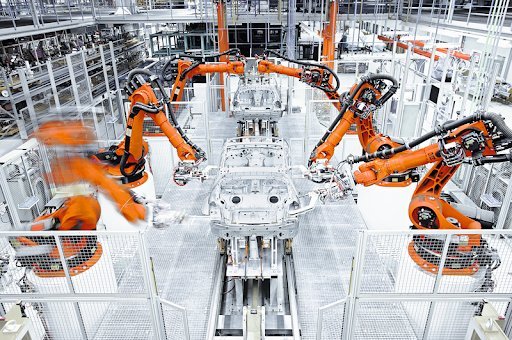Harnessing Automation: The Role of Industrial Control Systems
In today's rapidly evolving industrial landscape, automation plays a pivotal role in enhancing efficiency, productivity, and safety. At the heart of automation lie Industrial Control Systems (ICS), sophisticated solutions that orchestrate and optimize industrial processes. This article explores the indispensable role of Industrial Control Systems in harnessing the power of automation.
Harnessing Automation: The Role of Industrial Control Systems

Introduction
In today's rapidly evolving industrial landscape, automation plays a pivotal role in enhancing efficiency, productivity, and safety. At the heart of automation lie Industrial Control Systems (ICS), sophisticated solutions that orchestrate and optimize industrial processes. This article explores the indispensable role of Industrial Control Systems in harnessing the power of automation.
Outline
- Understanding Industrial Control Systems
- Automation and Efficiency
- Safety and Reliability
- Challenges and Solutions
- Conclusion
- FAQs
Background
Understanding Industrial Control Systems: Industrial Control Systems encompass a myriad of technologies and methodologies aimed at automating and regulating industrial processes. These systems include Programmable Logic Controllers (PLCs), Supervisory Control and Data Acquisition (SCADA) systems, and Distributed Control Systems (DCS), among others.
Automation and Efficiency
Discover how Industrial Control Systems drive efficiency through automation:
- Streamlined Processes: Industrial Control Systems automate repetitive tasks, streamline workflows, and optimize resource utilization, leading to significant improvements in operational efficiency.
- Real-Time Monitoring and Control: With Industrial Control Systems, operators gain real-time visibility into industrial processes, allowing for proactive decision-making and rapid response to changing conditions.
- Predictive Maintenance: Advanced analytics capabilities integrated into Industrial Control Systems enable predictive maintenance, minimizing downtime and maximizing equipment uptime.
Safety and Reliability
Explore how Industrial Control Systems contribute to safety and reliability in industrial environments:
- Fault Detection and Diagnostics: Industrial Control Systems incorporate fault detection algorithms and diagnostic tools to identify anomalies and potential issues before they escalate into critical failures.
- Emergency Shutdown Systems: Industrial Control Systems feature emergency shutdown functionalities that can swiftly and safely shut down operations in case of emergencies or hazardous conditions, mitigating risks to personnel and assets.
- Redundancy and Fail-Safes: To ensure system reliability, Industrial Control Systems often employ redundancy and fail-safe mechanisms that provide backup functionality in the event of component failures or disruptions.
Challenges and Solutions
Examine the challenges associated with Industrial Control Systems and strategies to overcome them:
- Cybersecurity Risks: With increased connectivity comes the risk of cyber threats. Implementing robust cybersecurity measures, such as network segmentation, access controls, and encryption, is crucial to safeguarding Industrial Control Systems.
- Legacy System Integration: Many industrial facilities still rely on legacy control systems that may not be compatible with modern automation technologies. Retrofitting or upgrading these systems to integrate with Industrial Control Systems can pose logistical and technical challenges but is essential for realizing the benefits of automation.
Conclusion
In conclusion, Industrial Control Systems serve as the cornerstone of automation in industrial environments, driving efficiency, safety, and reliability. By leveraging the capabilities of these sophisticated systems and addressing associated challenges, industries can unlock new levels of productivity and competitiveness in the era of automation.
FAQs
Q: How do Industrial Control Systems contribute to cost savings?
A: Industrial Control Systems optimize resource utilization, reduce downtime through predictive maintenance, and minimize risks of accidents or equipment failures, resulting in significant cost savings for industrial operations.
Q: What are some common cybersecurity threats to Industrial Control Systems?
A: Common cybersecurity threats include malware attacks, unauthorized access, ransomware, and denial-of-service (DoS) attacks. Implementing robust cybersecurity measures is essential to mitigate these risks and protect Industrial Control Systems from cyber threats.
Q: How can industries ensure the seamless integration of legacy control systems with modern Industrial Control Systems?
A: Industries can employ strategies such as phased upgrades, interoperability testing, and vendor collaboration to ensure the seamless integration of legacy control systems with modern Industrial Control Systems, minimizing disruption to operations.
What's Your Reaction?











![Wireless Connectivity Software Market Size, Share | Statistics [2032]](https://handyclassified.com/uploads/images/202404/image_100x75_661f3be896033.jpg)



